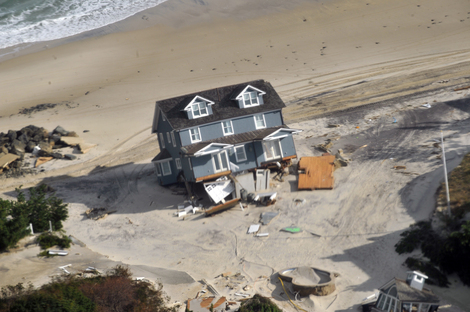On Monday, August 29, the New England governors met in Boston to discuss regional economic development. Climate, environmental and social justice groups from across the region released the following open letter in response:
Dear Governors,
As you gather to discuss the challenges and opportunities for economic growth in our region, we are writing to draw your attention to one of the most pressing economic problems facing New England: climate change. Sea level rise, extreme weather and other climate impacts threaten our region's prosperity and security. At the same time, the transition to clean energy and sustainability presents a wealth of exciting opportunities for growth, innovation, and job creation.
Climate change is already impacting the New England economy. From the cranberry growing, seafood and maple sugaring industries to skiing and our iconic leaf-peeping tourism, businesses are facing warmer and less hospitable conditions here. As the planet continues heating up, we are facing the possibility of losing a significant portion of the tens of billions of tourist dollars that flow into the region each year.
If our governments fail to take sufficient action, nearly 95,000 homes in Massachusetts, Connecticut, New Hampshire, Maine and Rhode Island, worth $72 billion, could be underwater by 2100. In Boston, sea levels could rise by as much as ten feet, leaving 30% of the city flooded. Extreme storms will continue to increase in frequency and severity; already, since 1958, the amount of precipitation falling in extreme storms has increased by 70%. Such storms are costly: Hurricane Sandy, to give just one example, resulted in $80 billion in damages.
On the other hand, if we choose to utilize and grow the technologies available to transition rapidly to clean energy, we can avoid the worst effects of climate change - and grow our economy too. Renewables and energy efficiency already represent two of the region's fastest-growing industries, with nearly 100,000 people employed in the clean energy sector in Massachusetts alone [6]. Just two weeks ago, developers completed construction of Rhode Island's Deepwater Wind, the first offshore wind farm in the country. These industries bring good, sustainable jobs, with a median wage of more than $50,000.
Clean, renewable energy is the best investment to bring our energy costs down, and it doesn't bring the undeniable financial and health costs associated with burning fossil fuels. But to continue moving to a clean energy economy, we need to have the right policies in place. We need to stop building dangerous and unnecessary new gas infrastructure, and double down on investments in solar, wind, geothermal, energy efficiency, storage and smart grid technologies. We need to ensure access to reliable and affordable public transit. We need to rethink our waste management systems. We need to support local food production; by integrating sustainable practices and green technologies, we can lower agriculture's footprint and increase yields.
You have an opportunity to grow our economy and turn New England into a global leader on climate and clean energy. We need bold leadership; there's no time to waste.
Respectfully,
350 Mass, 350 Maine, 350 CT, 350 VT, Fossil Free RI, WestRox Quarry Neighbors for a Fossil Fuel Free Future, Climate Action Now (Western Mass), Resist the Pipeline, South Coast Neighbors United, Inc., Food & Water Watch, OccupyDanbury, and Sisters of Mercy Critical Concerns Collaborative

